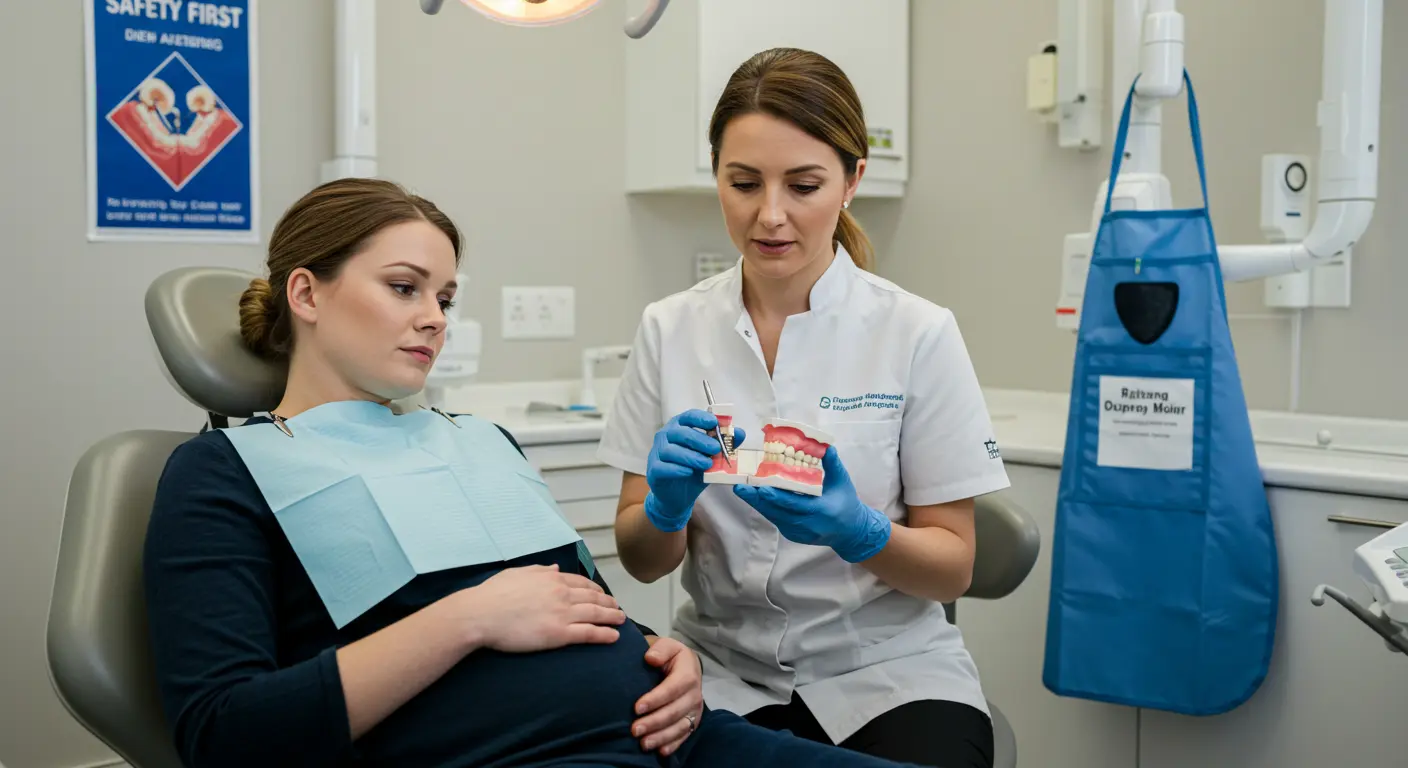Dental Implants During Pregnancy: Understanding the Risks and Safety Guidelines
Pregnancy is a transformative journey that demands meticulous attention to health—including dental care. While dental implants are a popular solution for missing teeth, undergoing this procedure during pregnancy raises significant concerns. This article explores the risks of dental implants during pregnancy, backed by medical guidelines, statistics, and expert insights. Whether you’re considering elective surgery or managing an emergency, understanding these risks is critical for safeguarding both maternal and fetal health.

Why Dental Health is Crucial During Pregnancy
Hormonal changes during pregnancy increase the risk of gum disease (pregnancy gingivitis) and tooth decay. According to the American Dental Association (ADA), 60–75% of pregnant women experience gingivitis due to elevated progesterone levels. Poor oral health is also linked to preterm birth and low birth weight, making dental care a priority. However, elective procedures like dental implants should be carefully evaluated for timing and safety.
What Are Dental Implants?
Dental implants are titanium posts surgically placed into the jawbone to replace missing teeth. The process involves multiple stages:
Bone grafting (if needed).
Implant placement.
Osseointegration (healing period).
Crown attachment.
While generally safe for non-pregnant patients, the complexity of this procedure introduces unique risks during pregnancy.
Risks of Dental Implants During Pregnancy
1. Anesthesia and Medication Concerns
Local anesthesia (e.g., lidocaine) is commonly used during dental surgeries. However, the FDA categorizes certain anesthetics as Category B (animal studies show no risk, but human studies are limited). Unnecessary exposure to medications during critical fetal development stages (first trimester) should be avoided.
2. Infection Risk
Post-surgical infections require antibiotics, some of which (e.g., tetracyclines) are unsafe during pregnancy. Infections can also strain the immune system, increasing stress on both mother and baby.
3. Stress and Discomfort
Surgery induces physical stress, which may elevate cortisol levels. High maternal stress is associated with complications like preterm labor.
4. Radiation Exposure
Dental implants require X-rays for planning. Although radiation doses are low, the American College of Obstetricians and Gynecologists (ACOG) advises minimizing exposure during pregnancy.

Safety Concerns and Medical Guidelines
Leading health organizations provide clear recommendations:
| Organization | Guideline on Dental Implants During Pregnancy |
|---|---|
| ACOG | Postpone elective procedures until postpartum. |
| ADA | Avoid non-urgent surgeries; focus on preventive care. |
| CDC | Prioritize emergency care only. |
Key Takeaway: Elective dental implants should be delayed until after delivery.
Alternatives to Dental Implants During Pregnancy
For urgent tooth replacement, consider temporary solutions:
Dentures: Removable and non-invasive.
Dental Bridges: Cemented to adjacent teeth (no surgery required).
Preventive Care: Address cavities or gum disease to avoid extractions.
These options minimize risks while maintaining oral function.
Postponing Dental Implants: What You Need to Know
If you’ve already started the implant process:
Consult your OB-GYN and dentist to assess urgency.
Pause after the first trimester if medically necessary.
Resume postpartum when safe.

Expert Recommendations for Dental Care During Pregnancy
Schedule a pre-pregnancy dental checkup to address issues proactively.
Brush and floss daily to reduce gingivitis risk.
Choose pregnancy-safe treatments like fillings or cleanings.
Statistics and Data on Dental Procedures in Pregnant Women
Recent studies highlight trends in dental care during pregnancy:
| Statistic | Data |
|---|---|
| Percentage of pregnant women avoiding dental care | 40% (CDC, 2022) |
| Prevalence of pregnancy gingivitis | 75% (ADA, 2023) |
| Dental implant surgeries delayed due to pregnancy | 92% (Journal of Oral Implantology, 2021) |
FAQ: Dental Implants and Pregnancy
Q: Can I get dental implants while breastfeeding?
A: Yes, but discuss medication safety with your doctor.
Q: What if I need emergency dental surgery?
A: Procedures are permissible with OB-GYN approval. Use lead aprons during X-rays.
Q: Do hormones affect implant success?
A: Hormonal changes may slow healing but aren’t directly linked to failure.
While dental implants offer long-term benefits, pregnancy is not the ideal time for this elective procedure. The risks of dental implants during pregnancy—from anesthesia concerns to infection—outweigh the benefits. Prioritize preventive care and temporary solutions, reserving implants for postpartum. Always consult your healthcare team to make informed, safe decisions.
By understanding these guidelines, you can protect your health and your baby’s well-being. Share this article to empower others with vital information!










